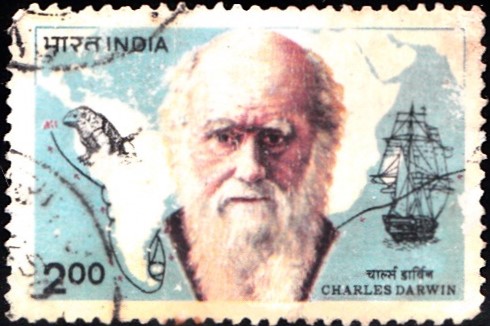
India on Charles Darwin
A commemorative postage stamp on the Death Centenary of Charles Robert Darwin, an English naturalist, geologist and biologist, known for his contributions to evolution :
 Issued by India
Issued by India
Issued on May 18, 1983
Issued for : Indian Posts & Telegraphs Department is privileged to issue a stamp to honour the memory of a great naturalist.
Description of Designs : The stamp shows the portrait of Charles Darwin alongwith HMS Beagle and the route it took to the Galapagos Islands. A line drawing of the land iguana found on those islands has also been shown. Both the stamp and first day cover have been designed by M. Mandal. Cancellation has been designed by Charanjit Lal.
Type : Stamp, Postal Used
Colour : Multicolour
Denomination : 200 Paise
Overall size : 4.06 X 2.73 cms.
Printing size : 3.71 X 2.38 cms.
Perforation : 13 x 13
Paper : Unwatermarked adhesive stamp paper
Number printed : 20,00,000
Number per issue sheet : 40
Printing process : Photogravure
Printed at : India Security Press
Name : Charles Robert Darwin
Born on Feb 12, 1809 at The Mount, Shrewsbury, Shropshire, England
Died on Apr 19, 1882 at Down House, Kent, England
About :
- Charles Darwin was born in 1809, in the town of Shrewsbury (England), the fifth child of Robert and Susannah Darwin. At the age of nine, he entered Shrewsbury School for formal schooling. He was a voracious reader with a taste for natural history, travel and poetry. At the age of sixteen, he was enrolled as a medical student at Edinburgh University, which he left after two years. He joined Christ’s College, Cambridge in 1828 as a student of theology. Though he obtained a pass degree in theology, he spent much of his time at Cambridge in pursuing his interests in natural history.
- In 1831, at the age of twenty two, Charles Darwin embarked on a momentous globe-girdling voyage. He joined the crew of the Royal Navy‘s survey ship, H.M.S. Beagle as a naturalist. For the next five years, the Beagle circumnavigated the earth, sailing across the Atlantic to the east coast of South America, through the straits of Tierra del Fuego North along the west coast to Galapagos Islands, then across the Pacific to Sydney and home to England via Cape of Good Hope and Bahia (Brazil). Everything he encountered – seabirds and beetles on bare mid-Atlantic rock, teeming fauna and flora in South American Jungles, fossils in the high Andes; all were minutely recorded in his diaries. Darwin was deeply impressed by everything he saw and experienced. All these, combined with the puzzling differences between animals and birds of the same species living on the various Galapagos Islands, led him to conclude that all species of plant and animal life have slowly evolved over thousands of years, adapting themselves to their environment by a process of natural selection, leaving only the selected species to survive. These findings and events, during the voyage of the Beagle resulted in the publication of his two great books, The Origin of Species (1859) and The Descent of Man (1871). These books continue to influence human thought ever since.
- In 1842, Darwin left London and took up residence at Down House in the village of Downe in Kent, where he spent the rest of his life studying and writing. He died on 19th April 1882 at his home in Downe and was buried close to Isaac Newton in Westminster Abbey.


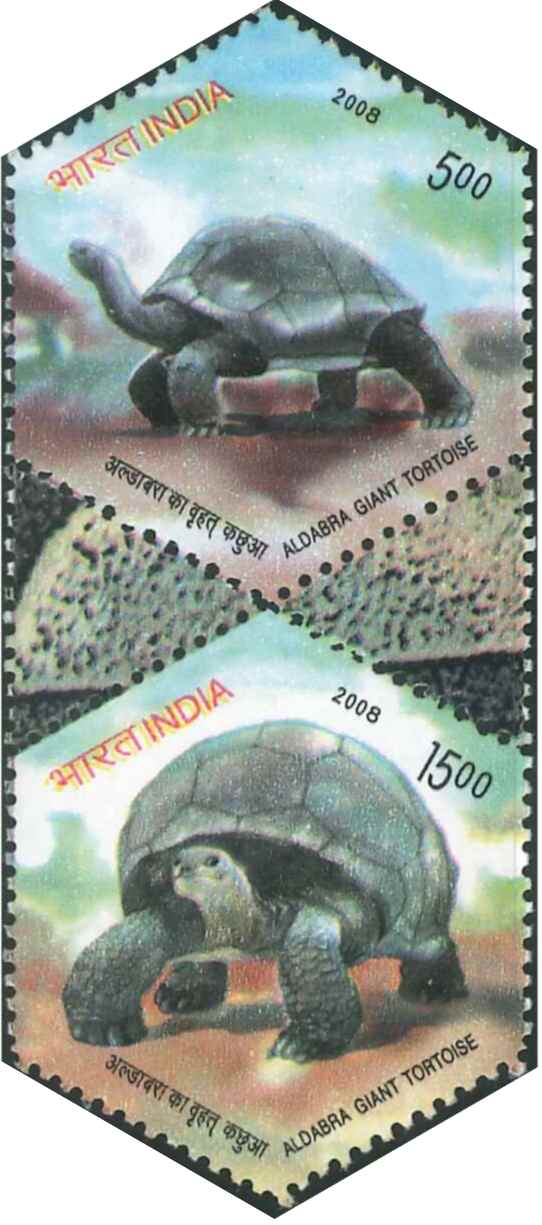
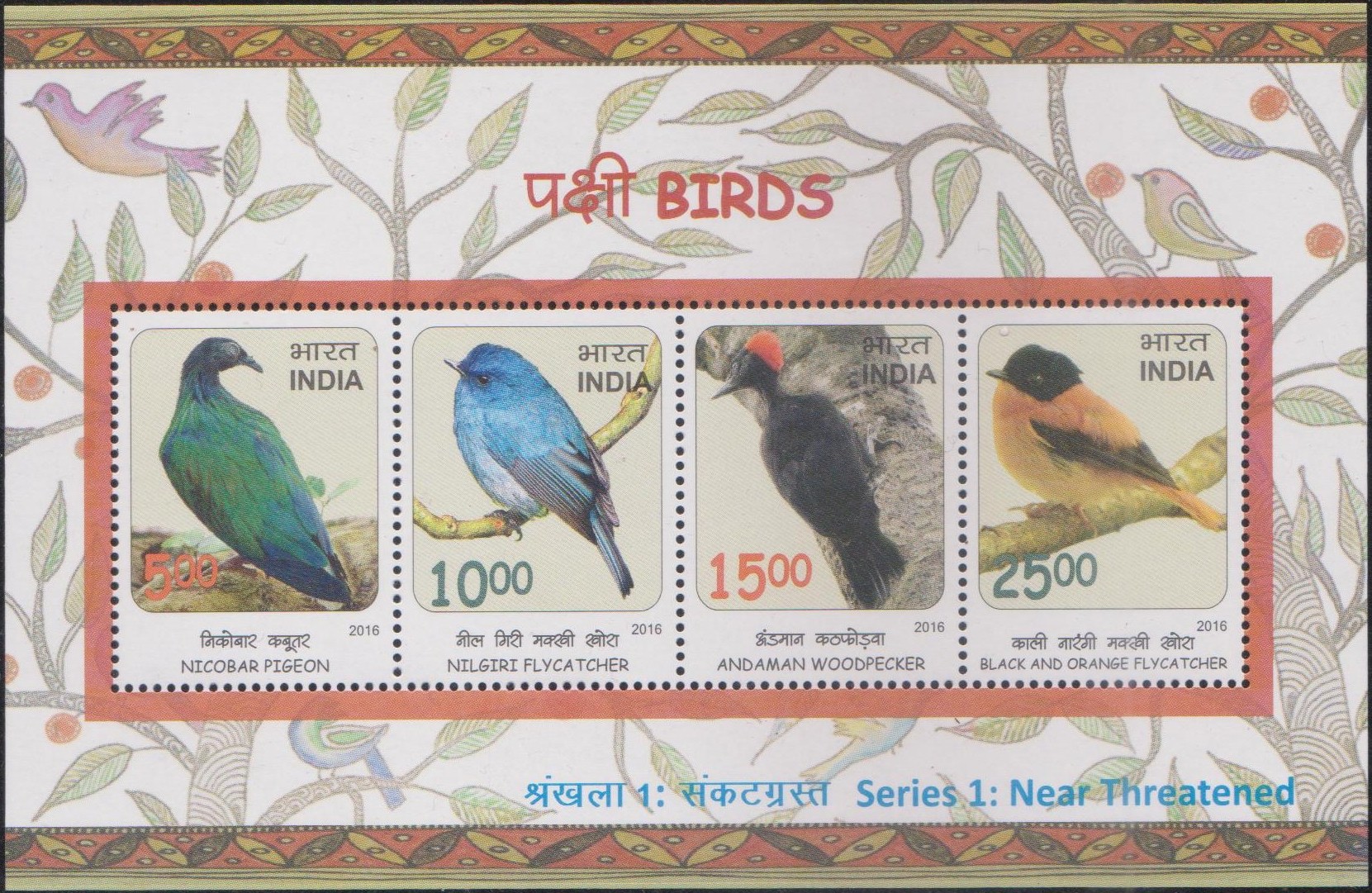
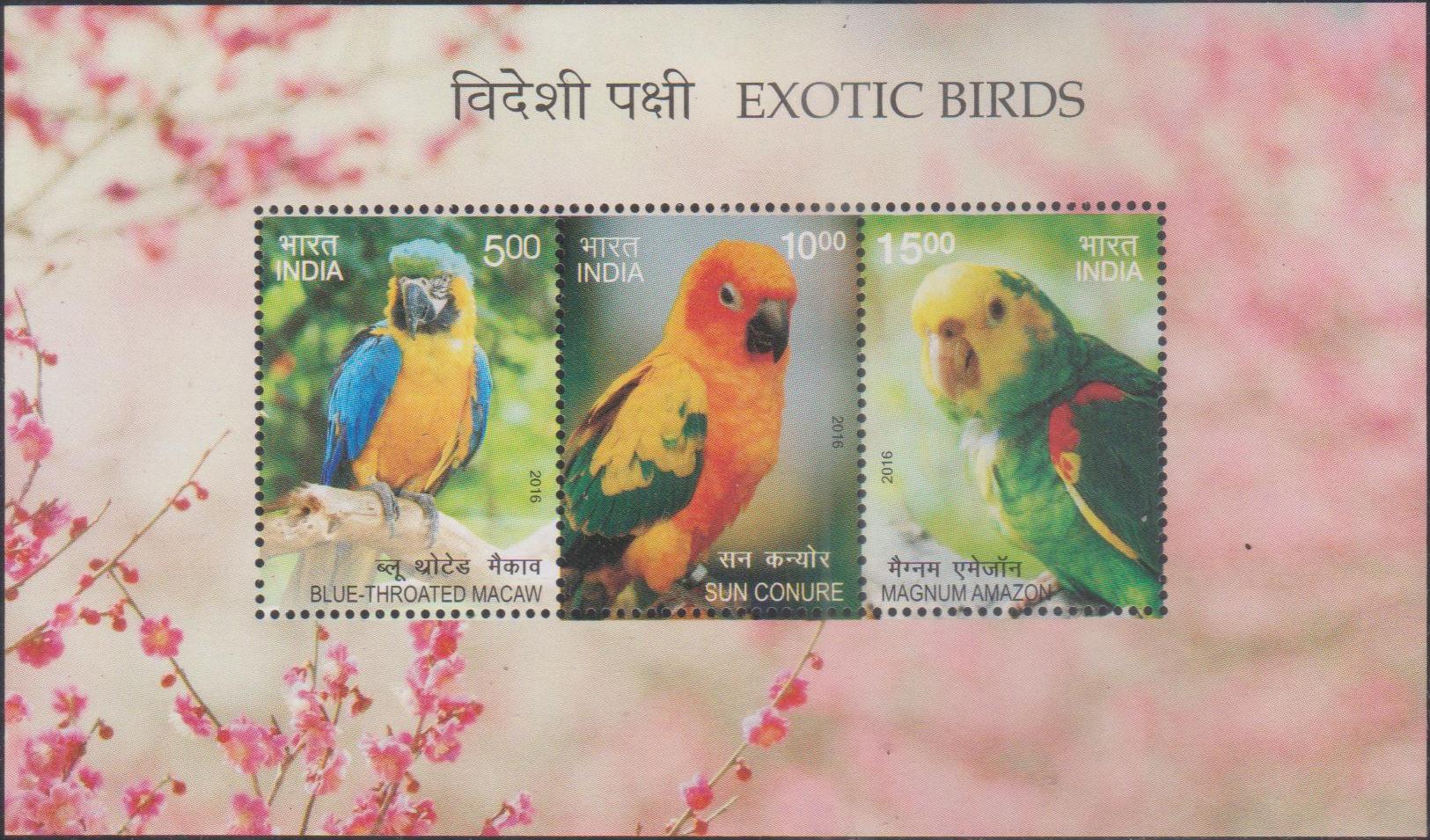
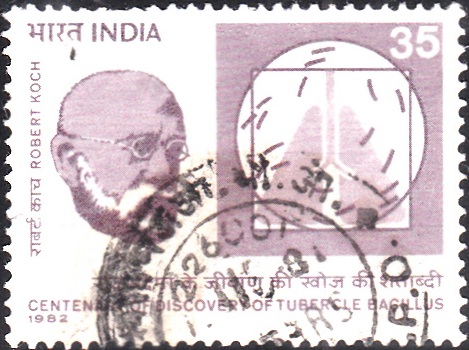

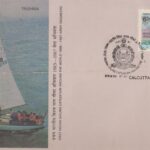
[…] already had eighty years behind him by the time Charles Darwin arrived at Galapagos and forever changed the way we look at our evolution. India’s first war of […]
[…] sharks and dolphins, seals, and numerous other sea and land life, and at Galapagos Islands, where Darwin wrote the theory of evolution, was very interesting. The members of the expedition are: 1. Col TPS […]